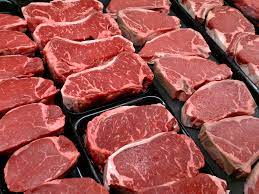Sarah Knapton, Science Editor of The Telegraph
MEAT is crucial for human health, scientists have warned, as they called for an end to the “zealotry” pushing vegetarian and vegan diets.
Dozens of experts were asked to look into the science behind claims that eating meat causes disease and is harmful for the planet in a special issue of Animal Frontiers. They warn that it is difficult to replace the nutritional content of meat, and poorer communities with low meat intake often suffer from stunting, wasting and anaemia driven by a lack of vital nutrients and protein.
In recent years, there has been a push towards plant-based diets, with schemes such as Veganuary and Meat-free Mondays encouraging the public away from meat.
The Global Burden of Diseases, Injuries and Risk Factor Study, published in The Lancet in 2020, also suggested that a diet high in red meat was responsible for 896,000 deaths worldwide.
However, the researchers writing in Animal Frontiers argue that unprocessed meat delivers most vitamin B12 in human diets, and plays a major role in supplying retinol, omega-3 fatty acids and minerals such as iron and zinc, as well as important compounds for metabolism, such as taurine and creatine.
In one paper in the issue, experts found no good evidence to support red meat being dangerous below intakes of 75g per day.
It also argued the link between red meat and disease vanished when it was eaten as part of a healthy diet, suggesting it was the rest of the diet that was leading to health problems.
Dr Alice Stanton, of the Royal College of Surgeons in Ireland, one of the authors of the review, said the peer-reviewed evidence published reaffirms that the Global Burden study’s claim that even tiny amounts of red meat are harmful is “fatally scientifically flawed”.
“Removing fresh meat and dairy from diets would harm human health. Women, children, the elderly and [people on] low income would be particularly negatively impacted,” she said.
The Animal Frontiers issue includes a declaration signed by nearly 1,000 scientists from leading universities arguing livestock farming is too important to “become the victim of zealotry”.
“Livestock-derived foods provide a variety of essential nutrients and other health-promoting compounds many of which are lacking in diets even among those populations with higher incomes,” the declaration states.
“Well-resourced individuals may be able to achieve adequate diets while heavily restricting meat dairy and eggs. However this approach should not be recommended for general populations.”
The issue also argues farming and herds of animals are useful for recycling large amounts of unusable crop waste as fodder, and can make use of land not suitable for sowing.
Dr Wilhelm Windisch, of the Technical University Munich, one of the authors of a report into ecosystem management in the issue, said: “One-size-fits-all agendas, such as the drastic reductions of livestock numbers could incur environmental and nutritional consequences on a massive scale.”
Richard Findlay, who chairs the National Farmers Union livestock board, welcomed the scientists’ findings. He said: “This … confirms what we’ve always known – that red meat is a quality, nutritious protein that plays a critical role in a healthy, sustainable balanced diet.














